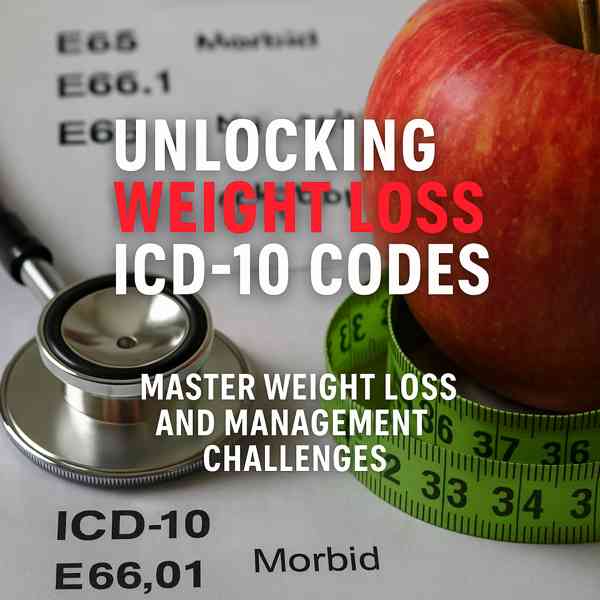Accurate ICD-10 Coding for Weight Loss
Accurate ICD-10 Coding for Weight Loss
Blog Article

Whether you’re a medical professional, billing specialist, or patient navigating claims, understanding weight loss ICD-10 codes is key.
In this article, we’ll break down what ICD-10 codes are used for weight loss, how to apply them, and what you should know for accurate recordkeeping.
ICD-10 Basics Explained
It’s a standardized system used worldwide for classifying medical conditions and diseases.
Each diagnosis is assigned a unique code, which is used for:
- Submitting claims to health providers
- Organizing medical statistics
- Clinical documentation
ICD-10 Codes for Weight Loss
Choosing the correct code depends on the cause, severity, and context of the weight loss.
Key codes include:
- R63.4 – Abnormal Weight Loss
This code applies when a patient loses a significant amount of weight without trying, often due to illness.
- Z71.3 – Dietary Counseling and Surveillance
Often applied in cases involving nutritional intervention or guidance.
- Z72.4 – Inappropriate Diet and Eating Habits
- E66.9 – Obesity, Unspecified
- Applied in extreme undernutrition cases, often linked with weight loss
When to Use R63.4 for Weight Loss
Use R63.4 when:
- The patient reports significant, unintentional weight loss
- Weight loss is a primary symptom in evaluation
- Additional testing is required to rule out causes
Tips for Correct ICD-10 Weight Loss Usage
To avoid claim denials or coding errors:
- Always specify if weight loss is intentional or not
- Include context like depression, cancer, or malabsorption
- Support your claim with a full picture
- Avoid using obesity and weight loss codes together unless clinically justified
Supporting Preventive Care Through Proper Codes
If you’re coding for a structured weight loss program or health coaching, consider using these Z-codes:
- Z71.3 – Dietary Counseling
- Can apply to coaching or fitness counseling
- Z13.21 – Encounter for Nutritional Screening
These codes can support insurance claims for wellness, prevention, and obesity weight gain icd-10 treatment plans.
Ensure Documentation is Clear and Compliant
Using the right ICD-10 code for weight loss is crucial for clear documentation and proper billing.
To summarize:
- Most common diagnosis for unknown causes
- Great for structured programs
- E-codes = Nutritional or medical malnutrition
Always consult coding guidelines and payer policies when applying ICD-10 codes. Report this page